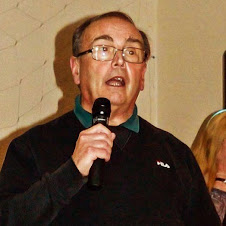So who are the Bahais? Well, this is what I have learned:
The Bahá'í faith is one of the youngest of the world's major religions. It was founded by Bahá'u'lláh in Iran in 1863. The basic Bahai beliefs, all of which are admirable (even if some are common to all religions) are as follows, and taken from the Bahai UK website:
"Bahá'u'lláh taught that there is one God whose successive revelations of His will to humanity have been the chief civilizing force in history. The agents of this process have been the Divine Messengers whom people have seen chiefly as the founders of separate religious systems but whose common purpose has been to bring the human race to spiritual and moral maturity.
Humanity is now coming of age. It is this that makes possible the unification of the human family and the building of a peaceful, global society. Among the principles which the Bahá'í Faith promotes as vital to the achievement of this goal are
- the abandonment of all forms of prejudice
- assurance to women of full equality of opportunity with men
- recognition of the unity and relativity of religious truth
- the elimination of extremes of poverty and wealth
- the realization of universal education
- the responsibility of each person to independently search for truth
- the establishment of a global commonwealth of nations
- recognition that true religion is in harmony with reason and the pursuit of scientific knowledge". "
Alas, I was wrong. The Bahai faith, founded in 1863, had the great misfortune to start out in Iran, where its followers were immediately regarded as heretics and apostates to Islam. This is because Islam teaches that Muhammad was "the seal of the prophets", and no further prophets (such as Baha'u'llah) are needed. It has been the unhappy fate of the Iranian Bahais to be persecuted under every political ruler in Iran, be it the Shah, or the Ayatollahs. Since 1979, over 200 Bahais have been executed, thousands have been imprisoned or driven into exile, and their community leaders arrested. They are also barred from higher education and employment opportunities. This disgraceful situation has been the subject of numerous reports by Amnesty International, Human Rights Watch and the International Labour Organisation (ILO).
To be "fair" to the Iranian regime, Bahais face discrimination in other countries: Afghanistan, Azerbaijan, Indonesia and Morocco. All these countries are Islamic; the only Muslim country to grant legal recognition to the Bahais is Egypt. The recent rise of the Muslim Brotherhood has caused anxiety to Bahais, Christians and other religious minorities in Egypt - the world's media never mentions that. One wonders why...perhaps the safest comment to make is that religious persecution is worse in some countries rather than others? Which leads to an obvious conclusion...



